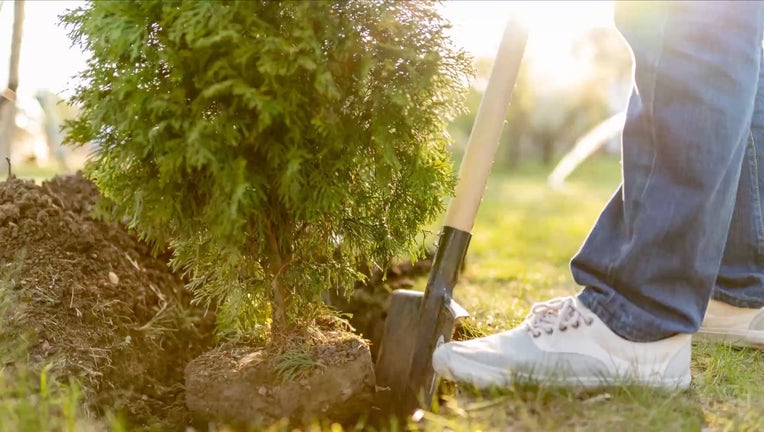Caltrans to plant native trees under agreement for Niles Canyon project

FREMONT, Calif. - An agreement reached between Caltrans and community activists will result in the planting of additional native riparian trees and the removal of invasive plant growth along Alameda Creek in Niles Canyon, an unincorporated area east of Fremont.
The agreement, the latest modification to the state agency's Niles Canyon safety improvement project, was applauded Friday by activists with the Alameda Creek Alliance.
"Caltrans now has a much improved road safety project with measures to promote a healthier riparian corridor along Alameda Creek through Niles Canyon," Jeff Miller, director of the Alameda Creek Alliance said in a statement. "This agreement will result in significant numbers of new sycamore trees being planted along the creek and removal of invasive plants, which will improve stream habitat for trout and other wildlife."
Work involves realigning a low-speed curve in Niles Canyon, widening road shoulders on straight portions near Sunol, upgrading guard rails, and removing some trees and utility poles close to the roadway.
Caltrans will also install traffic signals on state Highway 84 in Sunol at Main Street and Pleasanton-Sunol Road.
Work is expected to start this winter and be completed by the end of 2022, the alliance said.
The project will involve removing some of 83 existing riparian trees, with Caltrans agreeing to attempt to plant 332 replacement trees, primarily on its right-of-way locations. The agency will also remove invasive vegetation in the project area, such as tree-of-heaven, giant reed, pampas grass, and French broom.
"Now all of Caltrans' proposed road safety projects in Niles Canyon are moving forward or have been completed," Miller said. "The two settlement agreements we recently reached reduce our concerns about impacts to trees along Alameda Creek in the riparian zone. Riparian trees, especially sycamores, provide important wildlife habitat, shade the creek, stabilize stream banks, and provide nesting cavities for birds."

